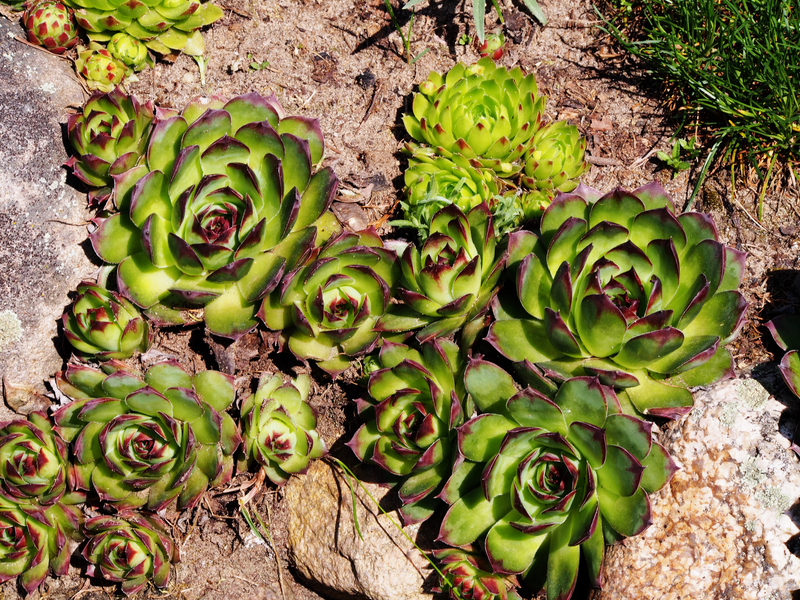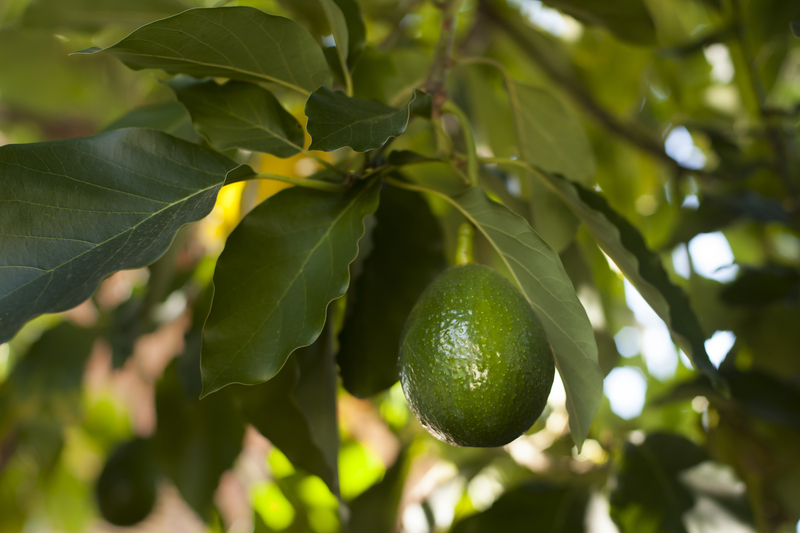Mastering Weed Control: 3 Essential Tips for a Pristine Garden
Posted on 30/06/2025
Mastering Weed Control: 3 Essential Tips for a Pristine Garden
Maintaining a beautiful and healthy garden is a source of pride for many homeowners and garden enthusiasts. However, one persistent challenge stands between you and your dream landscape: weeds. These uninvited guests not only spoil your garden's look but also compete with your cherished plants for nutrients, sunlight, and water. Fortunately, mastering weed control is achievable with the right strategies. In this in-depth guide, you'll discover three essential weed control tips that will help you achieve and maintain a pristine, weed-free garden.
Why Is Weed Control So Crucial for Your Garden?
Before delving into the methods of effective weed management, it's essential to understand why weed control is so important:
- Nutrient Competition: Weeds compete with your garden plants for vital nutrients in the soil.
- Moisture Depletion: Unchecked weeds can sap moisture, leaving your plants thirsty.
- Pest and Disease Hosts: Weeds often harbor pests and diseases that can spread to desirable plants.
- Reduced Aesthetic Appeal: A garden overrun by weeds loses its beauty and structure.
By mastering weed control, you'll not only improve your garden's health but also create a more enjoyable and visually appealing outdoor space.

Tip 1: Start with Preventative Strategies
Stop Weeds Before They Start
Prevention is always better than cure, especially in the realm of gardening. By taking proactive measures, you can dramatically reduce the number of weeds that ever reach your garden beds.
Mulching: The Gardener's Secret Weapon
Mulching is an essential step for weed prevention and overall garden health. Here's why mulch is so valuable in weed control:
- Blocks Sunlight: A thick layer of mulch prevents sunlight from reaching weed seeds, thus inhibiting germination.
- Maintains Moisture: Mulch keeps soil moist, making it challenging for weeds to establish their roots.
- Improves Soil Quality: Organic mulches break down over time, enriching your soil and promoting plant vigor.
How to Apply Mulch for Effective Weed Suppression:
- Choose natural mulches like wood chips, bark, straw, or shredded leaves.
- Layer mulch 2-4 inches deep around your plants and over bare soil.
- Avoid piling mulch directly against plant stems to prevent rot.
- Replenish mulch as it decomposes or becomes thin.
Landscape Fabric: An Extra Barrier
Landscape fabrics can also aid in weed prevention. When laid beneath mulch or gravel, they act as a physical barrier, reducing the germination of weeds in your beds and pathways. Although not foolproof, pairing fabric with mulch can offer long-term protection.
Tip 2: Master the Art of Manual Weeding
Hand Pulling: The Tried and True Method
Despite all precautions, some weeds will inevitably make their way into your garden. Manual weeding remains one of the most effective methods for getting rid of unwelcome plants, especially in flower beds and around delicate plants.
- Weed Regularly: Patrolling your garden once or twice a week keeps new weeds at bay and prevents them from going to seed.
- Pull from the Base: Grasp weeds at the base and pull steadily to remove the entire root system. This prevents regrowth.
- Weed When Soil is Moist: Wait for rain or water the area first--moist soil makes it much easier to remove roots.
- Use Quality Tools: Equip yourself with a hand fork, hoe, or dandelion weeder for stubborn weeds or those with deep roots.
Pro tip: Never add weedy material with mature seeds to your compost pile, as you risk spreading weeds when you use the finished compost.
Hoeing: A Quick Method for Larger Areas
For larger vegetable plots or open spaces, a sharp hoe can make quick work of young weeds. Hoe lightly just below the soil's surface, cutting off weeds before they establish. For best results, use this method during dry conditions so uprooted weeds die quickly.
Stay Vigilant: The Seed Bank Challenge
The true secret to long-term weed management is consistent effort. Remember, every weed that sets seed can produce hundreds or thousands of future weeds. Early removals prevent weeds from replenishing the soil's seed bank, making your job easier every season.
Tip 3: Use Targeted, Safe Weed Control Solutions
Smart Use of Herbicides
Sometimes, despite all efforts, tough weeds like bindweed, Canada thistle, or crabgrass persist. Selective herbicides and organic alternatives can be tools in your weed control arsenal.
- Spot-Treat Problem Areas: Only use herbicides where necessary to minimize environmental impact. Use a spray shield or apply with a brush to avoid damaging nearby plants.
- Follow Instructions: Always use weed killers according to the label. Never exceed recommended rates and avoid applications before rain to prevent runoff.
- Opt for Safer Alternatives: Consider organic solutions like vinegar, boiling water, or corn gluten meal for less toxic weed management. These are effective for young, small weeds and safer for children and pets.
Integrated Weed Management
Combining multiple weed control strategies is often the best way to ensure lasting results. For example, you might apply mulch, hand weed regularly, and use spot treatments only for the most stubborn weeds. This diversified approach minimizes environmental impact and keeps your garden healthy.
Other Pro Tips for Maintaining a Weed-Free Garden
Don't Give Weeds an Inch
- Space Plants Wisely: Dense planting shades the soil, denying weeds the light they need to grow.
- Water Wisely: Drip irrigation or soaker hoses apply water directly to plant roots, depriving weed seeds of moisture.
- Edge Your Beds: Install metal, plastic, or natural borders to prevent creeping weeds from invading your garden areas.
Know Your Enemy: Identify and Target Common Garden Weeds
Recognizing the most common weeds in your region helps you deploy targeted control measures. Some notorious garden weeds include:
- Dandelion
- Crabgrass
- Bindweed
- Clover
- Pigweed
- Lamb's quarters
Each invader demands a slightly different approach, so learning to identify weeds at all stages of growth is a valuable skill for any gardener.
Seasonal Strategies for Year-Round Weed Suppression
Weed control isn't just a spring or summer task-it requires vigilance throughout the year. Here's what to do each season:
Spring:- Apply a fresh layer of mulch after soil warms up.
- Remove early-sprouting weeds before they flower.
- Consider pre-emergent herbicides for problem weeds (read labels carefully).
- Mow or trim weeds before they set seed.
- Water only desired plants, avoiding damp, empty soil.
- Pull late weeds to deny them a wintering advantage.
- Cultivate soil lightly and mulch for winter protection.
- Monitor for cool-season weeds, like chickweed.
- Clean up plant debris and inspect for overwintering weed seeds.
Organic and Eco-Friendly Weed Control Techniques
Many gardeners prefer minimizing synthetic chemicals for environmental and health reasons. Here are some green weed control techniques:
- Mulch with Cardboard or Newspaper: Use layers of newspaper or cardboard under mulch as a biodegradable weed barrier.
- Solarization: Cover affected soil with clear plastic for 4-6 weeks in summer, baking weeds and seeds with the sun's heat.
- Flame Weeding: Propane torches quickly dispatch weeds in open or gravel areas (exercise caution near combustible material).
- Boiling Water: Pouring boiling water over sidewalk cracks or driveway edges instantly wilts persistent weeds.
While these methods may not offer instant results for every weed type, they're an excellent part of an integrated weed management plan for sustainable gardening.

The Economic and Environmental Advantages of Effective Weed Control
- Save Money: Fewer weeds mean less need for expensive fertilizers, water, and pesticides.
- Better Yields: Vegetable and flower gardens produce abundantly when weeds aren't stealing their resources.
- Healthier Ecosystem: Less chemical use and more targeted control benefit wildlife, pollinators, and soil life.
The Path to a Pristine Garden Starts with You
Whether your goal is a lush flower border, a productive vegetable patch, or simply a tidy, enjoyable outdoor space, mastering weed control is the foundation for success. With the essential weed control tips outlined above--prevention, consistent manual removal, and targeted solutions--you'll be well equipped to reclaim your garden from unwanted intruders.
Remember: Weed control isn't a one-time event, but an ongoing process that rewards persistence and attention. By making weed management part of your regular gardening routine, you'll enjoy a healthier, more beautiful, and sustainable outdoor paradise for years to come. Start today and transform your garden into the pristine oasis you've always imagined.
Ready to Master Weed Control?
Apply these three essential tips and discover just how rewarding a weed-free garden can be. For even more gardening advice and inspiration, follow our latest updates and join a thriving community of passionate gardeners dedicated to makings gardens beautiful, healthy, and weed-free all year long!
Latest Posts
Gardening with Dogs: Tips for a Harmonious Backyard
Creating Masterpiece Gardens with Hedge Trimming Shapes and Techniques
Revitalize Your Neglected Garden: Fresh Start Ideas
Essential Gardening Tools Every Outdoor Enthusiast Should Own

